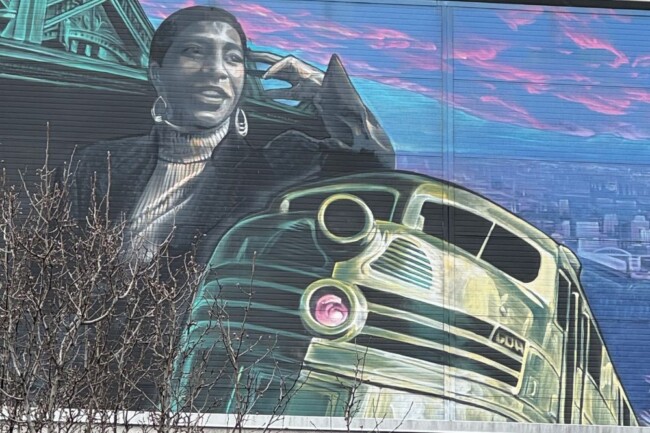Though Hoboken is often known for its Italian, Irish, or German roots, three Hobokenites have displayed black excellence on the international stage, or — in the case of Dorothy Blackwell McNeil — brought international black excellence to Hoboken. The Hoboken Girl has chosen three notable Black Hoboken residents to share with readers in honor of Black History Month. Read on for more about Joe Jeannette, known as the West Hoboken Ironman; musician Blind Tom Wiggins; and club owner and music icon Dorothy Blackwell McNeil.
Jeremiah “Joe” Jeanette
Hudson County is known for its prodigious breadth of boxing talent, and one of the greatest heavyweight boxers of the 20th Century hales from West Hoboken, today’s Union City.
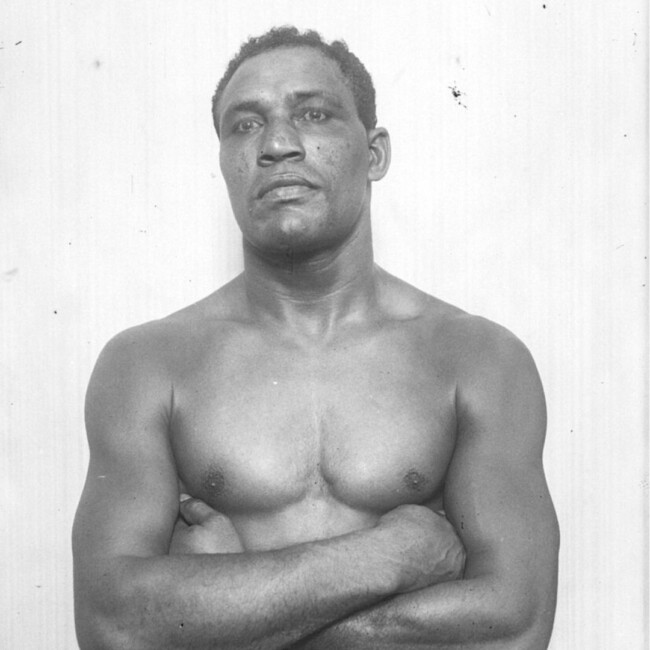
Photo Credit: Public Domain
Jeremiah “Joe” Jeanette, “the West Hoboken Iron Man,” holds the distinction of fighting the longest boxing match of the 20th century, clocking in at 3.5 hours and lasting 49 rounds on April 17th, 1909 in Paris. There, he battled Sam McVey to win the “World Colored Heavyweight Championship.”
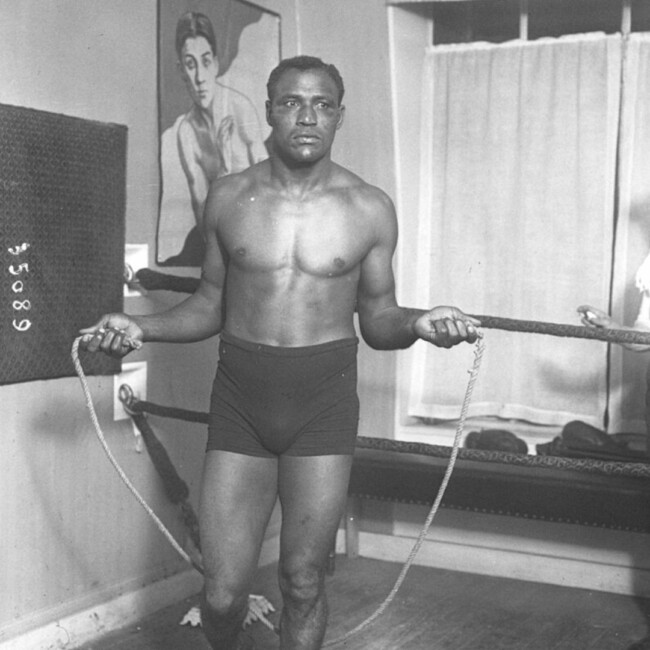
Photo Credit: Public Domain
Joe very well may have become the Heavyweight Champion of the World, were it not for Jack Johnson: not because of Jack’s superiority, but because once Jack became the Heavyweight Champion, he refused to fight black boxers, including Joe, despite many and frequent challenges.
Read More: Black-Owned Self-Care + Wellness Businesses in Hudson County
Joe and Jack fought 10 times, Joe losing twice, winning once (but Jack was disqualified in the second round), drawing twice, and the remaining five fights were deemed “No Decisions.” Jack called Joe “the toughest man I ever fought,” though Joe thought it reprehensible that Jack refused to fight once he’d won the title. Joe was quoted as saying: “Jack forgot about his old friends after he became champion and drew the color line against his own people.” Despite a 15-year career and outstanding record, Joe was never permitted to fight for the title of the Heavyweight Champion of the World.
After retiring from boxing in 1919, Joe starred in the 1922 silent film, Square Joe, a boxing movie portraying an innocent boxer mistaken for killing a policeman during a raid to infiltrate the illicit gambling underworld.
Though he retired at the age of 40, Joe continued to build upon his boxing legacy by founding a gym in West Hoboken at 2612 Summit Avenue, in today’s Union City. There, he trained a new generation of boxers, including Heavyweight Champion of the World James J. Braddock, better known as “Cinderella Man,” and namesake of Braddock Park in Union City.
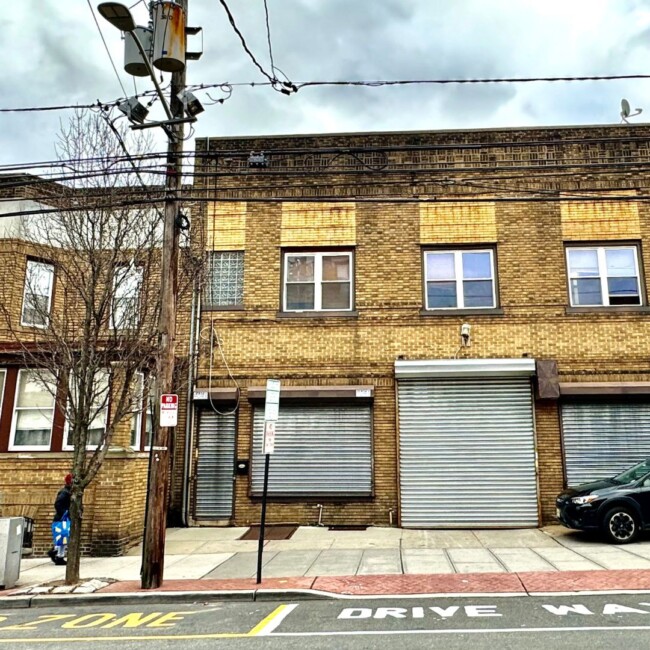
Confronted with institutional racism throughout his career and training world-class boxers — regardless of race — Joe fought opponents within the ring and for equality outside of the ring. Union City celebrated its native son by naming Jeanette Street in his honor.
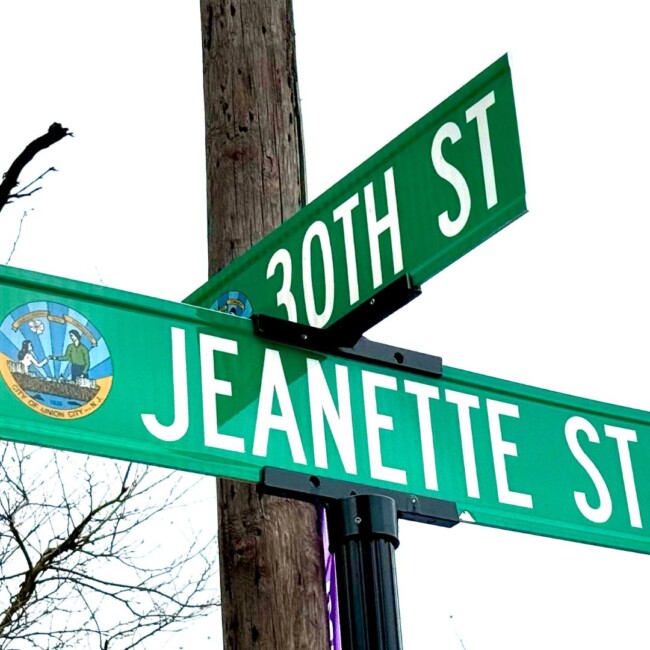
A plaque was located at 27th Street and Summit Avenue in Union City, though it has mysteriously disappeared as of the publication of this article.
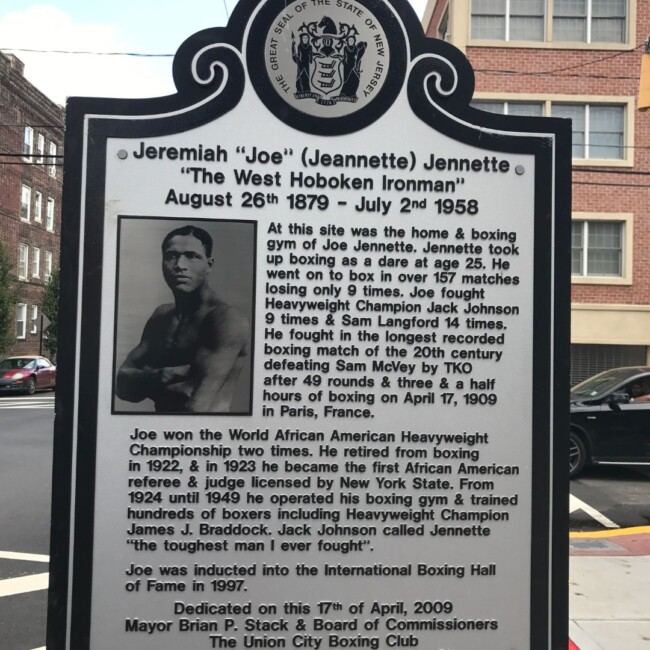
Editor’s Note: In our research, HG found that Joe’s last name was spelled both Jeannette and also Jennette. We used Jeanette, as it matched the Union City Avenue name.
Blind Tom Wiggins
One of the greatest and best-known black musicians of the 19th Century, Blind Tom Wiggins, retired from fame to Hoboken, settling in the “Yellow Flats,” on 12th and Washington Streets.
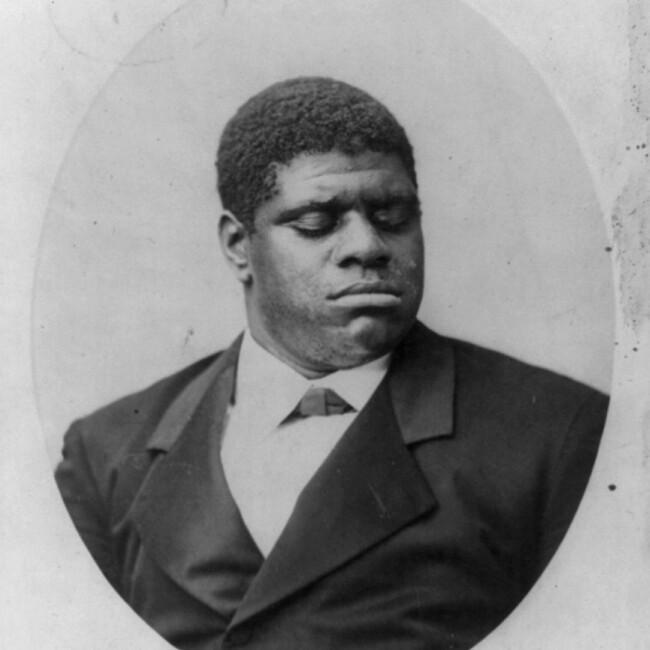
Photo Credit: Public Domain
Born blind and enslaved, a savant and prodigy, Tom couldn’t perform ordinary tasks demanded of an enslaved person, but at the age of five could already reproduce upon the piano the pitter-patter of rain upon a tin rooftop — thereby composing his first tune: The Rain Storm.
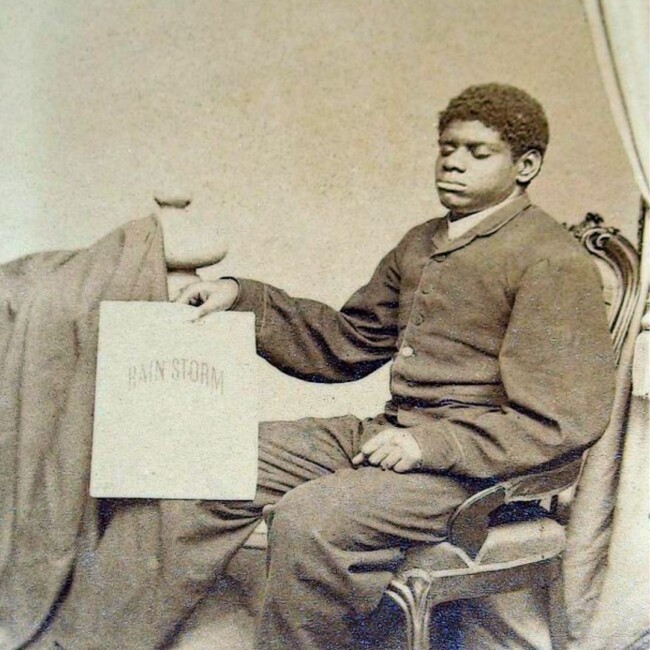
Photo Credit: Public Domain
At the age of eight, his enslavers hired “Blind Tom” out to tour throughout the United States earning $100,000 a year ($1.5 million a year today) — making him the 19th century’s highest-paid pianist.
In 1860, Tom played at the White House for President James Buchanan, becoming the first African-American to perform at the White House, which was attended by Mark Twain.
Miraculously, Tom could perform several musical scores simultaneously. In 1862, an astonished Confederate soldier recounted Tom’s recital:
“One of his most remarkable feats was the performance of three pieces of music at once. He played ‘Fisher’s Hornpipe’ with one hand and ‘Yankee Doodle’ with the other and sang ‘Dixie’ all at once. He also played a piece with his back to the piano and his hands inverted.”
Members of the audience began to challenge Tom, playing uncirculated compositions that Tom could repeat verbatim. At the end of the Civil War, Tom’s former enslavers took him on a European tour, with Tom aged 16.
Many historians, such as Oliver Sacks in Musicophilia, have concluded that Tom exhibited symptoms of autism, and even with slavery abolished following the Civil War, Tom continued to live in the custody of his former enslavers, the Bethune Family.
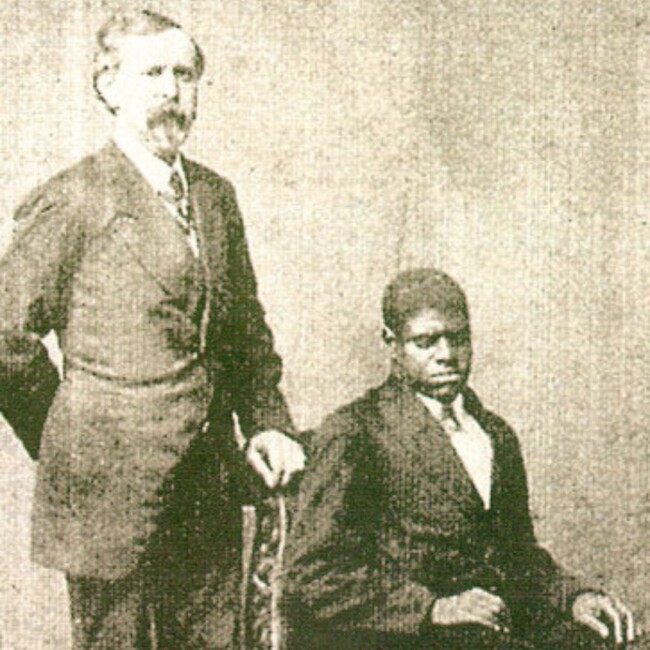
Photo Credit: Public Domain
After a protracted custody battle, Tom’s guardianship was awarded to Eliza Stutzbach, the second wife of John Bethune. Eliza seemed to have a bond with Tom, able to soothe his erratic and sometimes aggressive behavior.
Tom spent the next 10 years, with Eliza and her new husband on the vaudeville circuit, until Tom’s health began to wane. In 1904 Tom likely experienced a stroke, and after the death of her new husband, Eliza and Tom moved to Hoboken, retiring from public view. The only people able to hear Tom’s famed piano playing were his neighbors who through the Yellow Flat walls could enjoy Tom plucking the keys in the bright hours of a morning’s allegro or in the requiem of a moonlit sonata.
Dorothy Blackwell McNeil
While Dorothy Blackwell McNeil is not a nationally recognized name, she has done more to bring world-renowned black culture to Hoboken than any other person in Hoboken’s history. Though many remember Maxwell’s for its music legacy, just as important was Dorothy and her work at Club Zanzibar to create a heritage for black music in Hoboken.
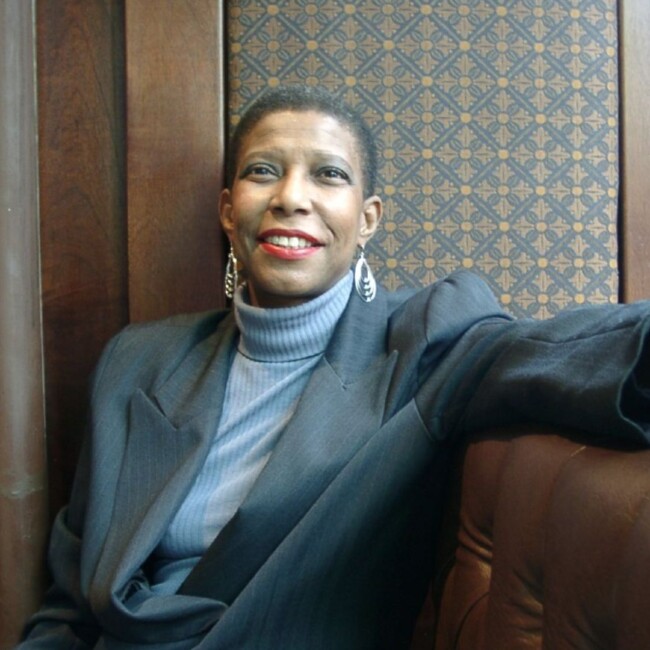
Photo Credit: Hoboken Historical Museum
Club Zanzibar operated from 1961-1981 at 601 1st Street in Hoboken. Established by James Smith (Zimp) and Charles McNeil, Dorothy was hired as a server, but her tenacity and drive soon had her promoted and a workplace romance blossomed into a marriage between Dorothy and Charles. Zimp left Club Zanzibar, and Dorothy assumed more responsibility, especially as Charles was often away on business.
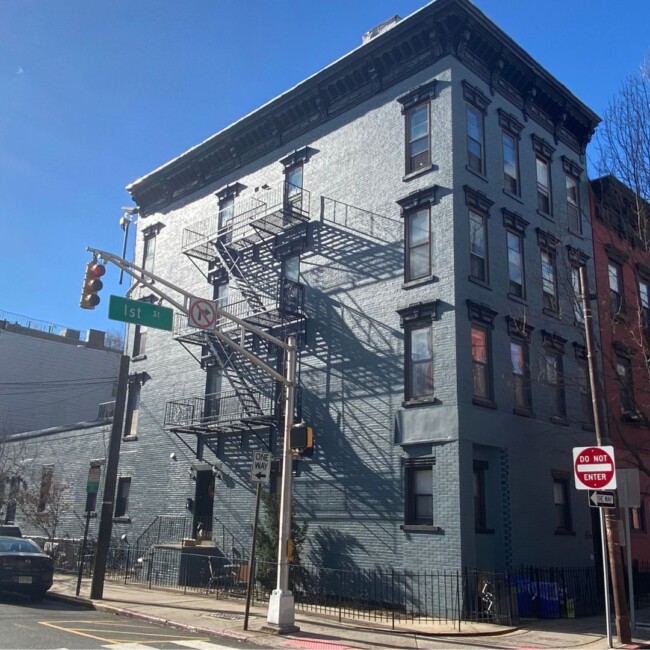
Under Dorothy’s ownership and management, Club Zanzibar drew some of the most famous black musicians to Hoboken.
Wilson Pickett, a key figure in American soul music, sang his timeless hits In the Midnight Hour, Land of a Thousand Dances, 634-5789, and Mustang Sally in Hoboken.
See More: Famous Black Singers + Rappers From North Jersey
Artist Millie Jackson performed spoken word monologues in Hoboken, thereby becoming “the mother of hip-hop” as an early progenitor of rap — making Hoboken an early stage for rap. Bayonne’s The Ad Libs sang their doo-wop anthem, The Boy from New York City, at Club Zanzibar.

Dorothy’s story has been collected into a chapbook entitled Recollections of Dorothy McNeil as a part of the Hoboken Oral History Project led by the Hoboken Historical Museum. Her image is memorialized in a mural painted by graffiti artist DISTORT at 1320 Adams Street, viewable by the 14th Street Viaduct.

